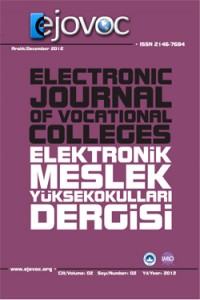Yıl 2012,
Cilt: 2 Sayı: 2, 131 - 134, 31.12.2012
Öz
Anahtar Kelimeler
Kaynakça
- Baydan, E. B. (2008). Visibility of Translation through Conflicting Ideologies: The Islamic Retranslations of “100 Essential Readings”. Diss. Boğaziçi U.
- Bermann, S., Wood, M. (2005). eds. Nation, Language and the Ethics of Translation. Princeton & New York: Princeton U.P.
- Chesterman, A. (2001). Proposal for a Hieronymic Oath. The Translator, 7(2), 139-154.
- Chesterman, A, Wagner, E. (2002) Can Theory Help Translators?: A Dialogue between the Ivory Tower and the Wordface. Manchester & Northampton: St. Jerome.
- Nord, C. (1997). Translating as a Purposeful Activity. Manchester: St. Jerome.
- Pym, A. (2001). Introduction: The Return to Ethics in Translation Studies. The Translator 7(2), 129-38.
- Sertkan, K. (2007). The Ideology of Lexical Choices in the Turkish Translations of “Oliver Twist”. Diss. Dokuz Eylül U, 2007.
- Spivak, G.C. (2003). Death of a Discipline. New York: Columbia U. P.
- Venuti, L. (1998). The Scandals of Translation: Towards an Ethics of Difference. London & New York: Routledge.
- Vermeer, H. J. (1996). A Skopos Theory of Translation. Verlag: Heidelberg.
Yıl 2012,
Cilt: 2 Sayı: 2, 131 - 134, 31.12.2012
Öz
Ethics is one of the most significant matters which translation studies has been interested in recently. In this study, with reference to the early views to translation, and then to more recent approaches to it, translation and its development through time has been described. It has been shown that, there may be times when the translator may deviate from the faithful rendering of a source text. Moreover, it has been questioned if the translator has right to do any changes in the source text, whether it is always ethical to adapt or change the original text or not. In the end, it has been tried to prove that, there are times when it is not ethical to do changes or adaptations in translation of texts
Anahtar Kelimeler
Kaynakça
- Baydan, E. B. (2008). Visibility of Translation through Conflicting Ideologies: The Islamic Retranslations of “100 Essential Readings”. Diss. Boğaziçi U.
- Bermann, S., Wood, M. (2005). eds. Nation, Language and the Ethics of Translation. Princeton & New York: Princeton U.P.
- Chesterman, A. (2001). Proposal for a Hieronymic Oath. The Translator, 7(2), 139-154.
- Chesterman, A, Wagner, E. (2002) Can Theory Help Translators?: A Dialogue between the Ivory Tower and the Wordface. Manchester & Northampton: St. Jerome.
- Nord, C. (1997). Translating as a Purposeful Activity. Manchester: St. Jerome.
- Pym, A. (2001). Introduction: The Return to Ethics in Translation Studies. The Translator 7(2), 129-38.
- Sertkan, K. (2007). The Ideology of Lexical Choices in the Turkish Translations of “Oliver Twist”. Diss. Dokuz Eylül U, 2007.
- Spivak, G.C. (2003). Death of a Discipline. New York: Columbia U. P.
- Venuti, L. (1998). The Scandals of Translation: Towards an Ethics of Difference. London & New York: Routledge.
- Vermeer, H. J. (1996). A Skopos Theory of Translation. Verlag: Heidelberg.
Toplam 10 adet kaynakça vardır.
Ayrıntılar
| Birincil Dil | Türkçe |
|---|---|
| Bölüm | Makaleler |
| Yazarlar | |
| Yayımlanma Tarihi | 31 Aralık 2012 |
| Gönderilme Tarihi | 5 Ocak 2015 |
| Yayımlandığı Sayı | Yıl 2012 Cilt: 2 Sayı: 2 |

